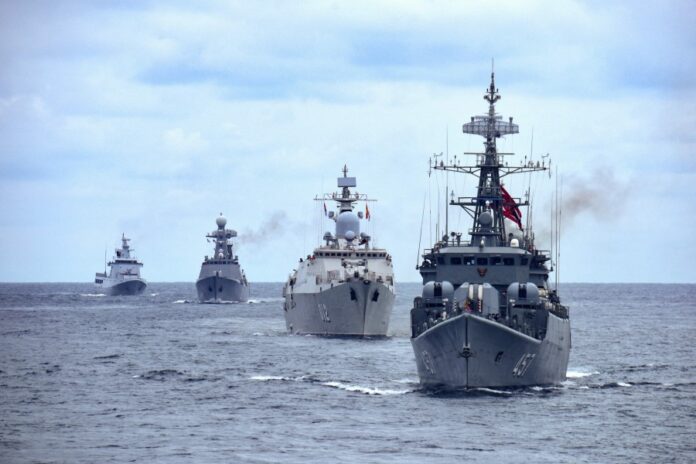Author: Evan A. Laksmana
Affiliation: National University of Singapore
Organization/Publisher: ISEAS-Yusof Ishak Institute
Date/Place: December 28, 2021/Singapore
Type of Literature: Article
Number of Pages: 9
Keywords: Indonesia, Indo-Pacific, Foreign Policy, China Rivalry
Brief:
The author examines Indonesia’s strategic stakes and limitations in the Indo-Pacific and analyzes the bureaucratic and domestic political obstacles in the development of Indonesian Indo-Pacific strategy. The author argues that the Indo-Pacific possesses important strategic challenges that Indonesian policymakers should put into consideration. First, in the context of US-China strategic rivalry, the resulting polarization in the region will bring instability and will challenge Indonesia to make a strategic policy without being trapped in between competitive dynamics over the Indo-Pacific. Second, maritime security challenges include illegal, unreported, and unregulated fishing to transnational organized crime that often occurs inside Indonesian territory. Third, ASEAN’s lack of strategy in the Indo-Pacific and fading relevance has been a challenge for Indonesia, which has always invested in it as a primary foreign policy platform. Fourth, relations with other major countries. To defend its interest in the Indo-Pacific, Indonesia must seriously build and maintain relationships with other regional partners beyond ASEAN. The author criticizes Indonesia’s Minister of Foreign Affairs as too focused on the implementation of ASEAN Outlook on the Indo-Pacific (AOIP) despite its inherent limitations, flawed assumptions, and lack of strategy. Although having AOIP is better than nothing, nevertheless, Indonesia’s foreign policy cannot and should not keep pushing ASEAN as the solution for all Indo-Pacific issues. The author urges the importance for Indonesia to seek strategic partners beyond ASEAN to improve its strategic policy in the Indo-Pacific. Indonesia also has its own bureaucratic and domestic hurdles within the country. Indonesia’s strategic resources keep focusing inward, in which the military is preoccupied with domestic tasks while its external defense capabilities remain underwhelming. Furthermore, Indonesia does not have an institutional body under the President that covers the inter-agency strategic policymaking processes. In other words, it does not have the equivalent of a National Security Council. Consequently, Indonesia lacks a unifying “threat” idea that would mobilize all policymaking instruments towards a more comprehensive strategic policy.
Critical Analysis:
The inability of Indonesia’s foreign policy to explore a non-ASEAN strategic partner in the Indo-Pacific or directly address its issues shows that Indonesia is still shying away from geopolitical contestation in favor of domestic affairs. This is reflected in the President’s ambitions on domestic development and lack of interest in daily geopolitical affairs, which task is left to his ministers who often do not represent the national interest. The Indo-Pacific possesses a wide array of interests that Indonesia has to defend, and Indonesia’s policymakers are still unable to achieve the nation’s interest due to a fractured and irrelevant strategic response. This highlights the incompetence of the President and his ministers to drive their resources on daily geopolitical affairs in the region.
By: Salman Nugraha, CIGA Research Intern




